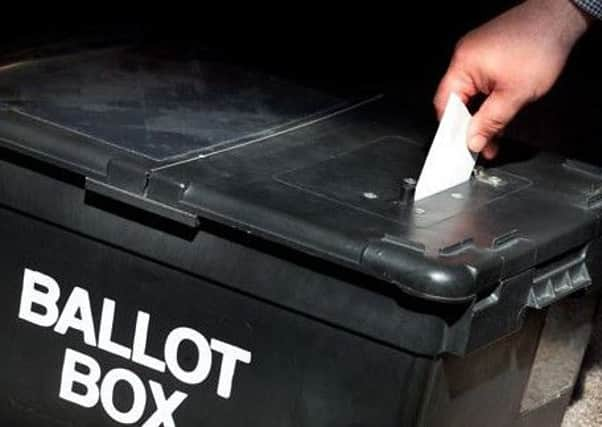Tommy Sheppard MP: The UK is not a democratic country


We need to talk about democracy in the UK. The UK Government recently hosted its first “National Democracy Week” – with no sense of irony. We absolutely should be celebrating the 90th anniversary of the equalisation of voting ages for men and women. Nobody would argue with that.
But we should celebrate that achievement precisely because it shattered an unjust status quo. And we still have an unjust status quo – a broken system that the Tories seem hell-bent on defending. The pomp and ceremony of Westminster may seem quaint to some, but its democratic system is as outdated as its traditions. Even putting aside the fact that most of the legislators are unelected Lords, the elected House of Commons uses, in first-past-the-post, a voting system to elect MPs that doesn’t even reflect the votes cast by the electorate.
Advertisement
Hide AdAdvertisement
Hide AdThe majority of seats shared by the Conservatives and the DUP was won with just 43 per cent of the vote. In fact we have had governments elected by a minority of voters for almost all of the time since World War II, while millions of voters are excluded at every election.
The same goes for local councils across England, where you find one-party fiefdoms without a single opposition councillor and absurd results like Plymouth and Wandsworth, where the party that lost the election won the most seats. I’m not pretending that elections in Scotland are perfect but at least the Scottish Parliament, with its proportional electoral system, reflects the votes cast. Our local elections also use a form of PR so that seats match votes and councils reflect the people they serve. And you can vote from the age of 16 allowing young people to get, and stay, involved in politics.
The fact that we have managed to reach this point – of having democratic institutions that reflect the people – is worth celebrating, particularly given the vociferousness of opposition to this simple principle by politicians elsewhere in the UK.
Proportional representation of voters is absolutely central to any modern democratic society – and it’s abhorrent that no Westminster government has ever genuinely asked the electorate whether they’d actually like Parliament to reflect the way they vote. Instead, the people were fobbed off in 2011 with a choice between the status quo and a system that is often even less proportional: the alternative vote.
Two-thirds of people believe that seats should match votes at Westminster, according to recent polling, and for as long as Scotland remains a part of the UK, the SNP will champion any moves towards making this a reality.
First-past-the-post governments elected on around 40 per cent of the vote are simply not democratic. It’s time the UK as a whole caught up with Scotland, Wales, and for that matter most of the developed world.
Westminster would finally see governments that not only look like the people who voted for them, but that represent the views of the majority. That’s why the hundreds of volunteers from Make Votes Matter who took part in Demand Democracy Day on 30 June shouldn’t be ignored. You’ve got to admire their spirit. They organised around 60 street stalls across the UK – from Dover to Dundee – and invited members of the public to sign the new petition for proportional representation which calls on MPs to support it. If you really want to help celebrate democracy, sign the petition to Make Votes Matter and let’s get proportional representation for Westminster.
Tommy Sheppard is SNP MP for Edinburgh East
